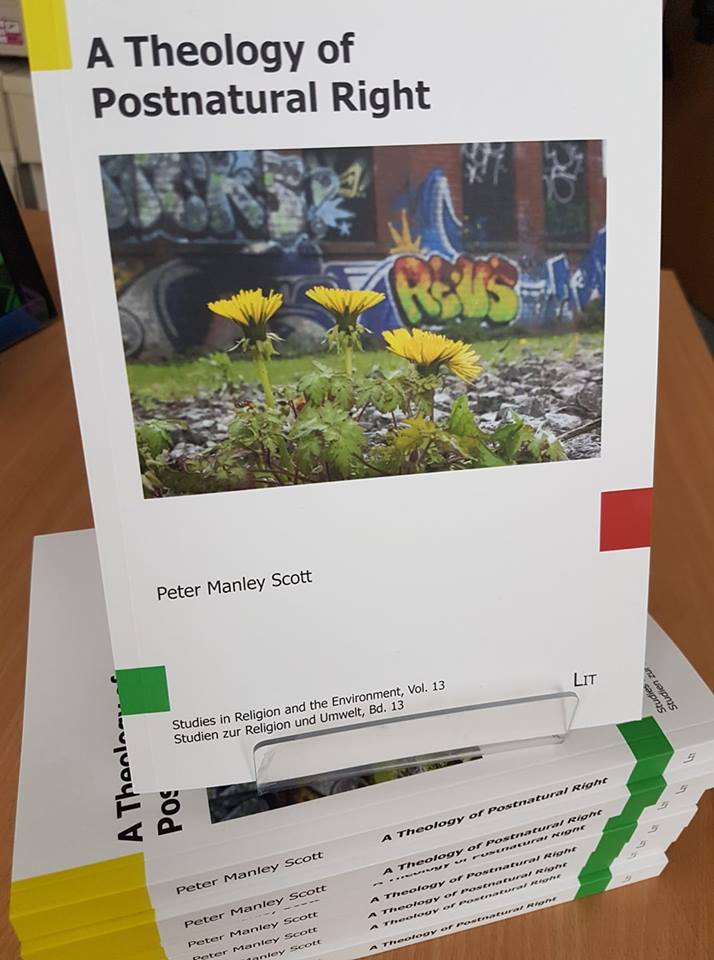Scott, A THEOLOGY OF POSTNATURAL RIGHT
 August 23, 2019
August 23, 2019  Extinction Rebellion and Greta Thunberg’s work have put the matter of our climate emergency firmly in the centre of our politics. As I write, there are many fires burning unchecked in the Amazon, with the suggestion that in 2019 Brazil has seen the largest number of fires. In this book, I propose a Christian ethics for a climate emergency. In what way?
Extinction Rebellion and Greta Thunberg’s work have put the matter of our climate emergency firmly in the centre of our politics. As I write, there are many fires burning unchecked in the Amazon, with the suggestion that in 2019 Brazil has seen the largest number of fires. In this book, I propose a Christian ethics for a climate emergency. In what way?
By thinking about a social order in terms of a “greater society”—that is my suggestion. Part of the reason why we can so easily forget that we are dependent creatures is because we do not see ourselves as members of such a greater society. Therefore, my take is that we should regard our society as populated by many agents; our greater society is not a site of human-only habitation. So a greater society points us towards a right order of life rather than a right order of humans. If this is what is going on—and in truth has always been going on—what should we be doing? In this social order of life, how are we to live wisely and carefully?
By setting aside notions such as duty, utility and law, stewardship, etc. and focussing instead on right: postural right, right for a postnatural condition. Right is a defensive or negating notion that seeks to identify and support the liberty and security of all creatures. The presentation of right is also the attempt to discern, identify and correct particular social and ecological practices. In my argument, right does not refer us to some original or primordial condition but to social patterns and arrangements that are socially useful with regard to obtaining liberty and security. Right-based arguments are opposed to a dominant or authoritative interpretation or state of affairs. As such, thinking in terms of right is a struggle against established authorities, and so related to protest. That is, right offers an ideal commentary about the future of a society, the unity of humanity and a wider creatureliness.
My position is new, and yet not so new, for it is based in a doctrine of creation. Fundamental here is the way in which the ecologically attuned restatement of the doctrine of creation requires the decentring of the human: related to God’s purposes, human concerns are thereby denied a centrality. Rightly understood, this does not challenge the concept of imago dei but is a re-working of it. Being in the image of God need not function as a way of strongly contrasting the human with the rest of nature. Instead, imaging God may be understood in relational ways: horizontally with reference to creation as well as vertically with reference to God. In displacing the centrality of human concerns, the concerns of other creatures may be moved from background to foreground. No longer does the human occlude other creatures.
Therefore, the doctrine of creation can provide a basis for a just social life rooted in a common creatureliness that humans share with others. When we speak of a social life, we are speaking of a society that is wider than the human. We move then from creatio to creatura: to explore the doctrine of creation towards an understanding of creatures in a greater society and towards a right order of life.
Peter Scott
 Email | Comments Off
Email | Comments Off 